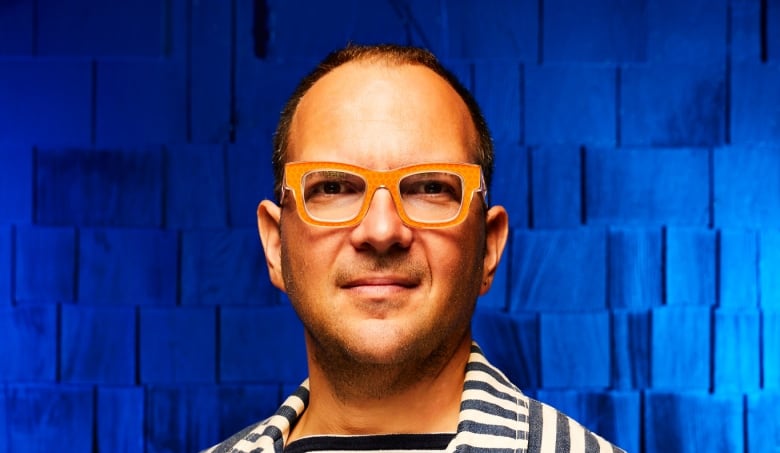Scams, conspiracies, and surprising theories on why we fall victim to them | CBC Radio
Ideas53:59Taken In: Exploring Credulity
*Originally published on April 20, 2023.
The word “credulity” has sting. It’s associated with gullibility: falling prey to lying, fraud, and dubious beliefs. But is it really all the victim’s fault?
“It would be a very grim world if we went around not trusting everybody,” said psychologist and credulity expert Stephen Greenspan. “On the other hand, you need to be aware of situations where it’s dangerous.”
That situational awareness can pose a challenge these days, as scams grow more numerous and difficult for the public to detect.
According to to the latest report the latest report from the Canadian Anti-Fraud Centre, “fraud, identity crimes, and associated cyber-crimes…are rapidly growing issues.”
It’s happening against a cultural backdrop of misinformation and conspiracy thinking, amplified by the internet.
Taken in by online fraudsters
Novelist Cory Doctorow is not credulous online. An early advocate for “the emancipatory power of the internet” he’s since built a career as an outspoken technology activist and pioneering blogger, with an expert’s keen knowledge of the digital landscape.
So he was dismayed to discover recently that he’d fallen for an everyday online scam.
Doctorow had distractedly ordered takeout food on his cellphone, clicking on an advertisement that appeared atop his Google search. The ad purported to be for his favourite Thai restaurant, but was in fact a nefarious third party.
The fraud was minor, but for Doctorow, it points to a larger, more aggravating reality for technology users who fall prey to increasingly convincing-looking financial traps online.
“I actually think that the most obviously culpable entity here is Google,” he said.

The tech giant could easily solve the problem by creating software to perform a simple check on the legitimacy of advertisers, according to Doctorow. But in his view, Big Tech doesn’t make that kind of thing a priority.
“Unchecked by strong competitive regulation, in a world of increased financialization,” he sees today’s internet as a place that gives precedence instead to ad revenues and profit.
The psychology of fraud victims
Stephen Greenspan, a retired professor of psychology and author of several books on gullibility, experienced a major fraud, despite his areas of expertise.
After Wall Street titan Bernie Madoff was revealed to have been operating a US $60 billion Ponzi scheme in late 2008, Greenspan discovered that he had lost more than half a million dollars in invested retirement savings.
“Even though I’m an expert on gullibility and know a lot about things like politics, I didn’t know anything about finance,” Greenspan told IDEAS.
The Madoff experience changed that: “Since then I’ve become a world authority on Ponzi schemes.”
To analyze fraud victimization, Stephen Greenspan developed a psychological model of gullible investing. It has four factors that can shift in importance: situation, cognition, emotion, and personality. He even analyzed his own financial fraud victimization through this model.
The psychologist says he was emotionally excited about an investment opportunity that had reliable advocates, and high returns. And even though he is a critical thinker in many areas, he says of himself, “I tend to be somewhat gullible as a personality trait.”
While it can be uncomfortable to stop and assess our own limits and blindspots before acting, it’s important, if we want to avoid being fraud victims, said Greenspan. He mentions the Dunning-Kruger effect, a theory of cognitive bias that sees people overestimate their own knowledge or abilities in a given area.
One of the things I know about very smart people is, they’re willing to say, ‘I don’t know.’– Stephen Greenspan
Greenspan sees it in the wider culture, as a widespread aversion to admitting ” ‘I don’t know.’ I see that in anti-vax, I see it in politics. It’s driven by emotion, and it’s driven by ignorance.”
For Greenspan, “It may be more scary, in a way, than financial vulnerability, because it puts our whole democracy at risk…
“One of the things I know about very smart people is, they’re willing to say, ‘I don’t know.'”
Taken in by conspiracy
In their different ways, historian Carolyn Biltoft and essayist Phil Christman, have explored the how and why of people drawn into believing conspiracy thinking.
Christman spent time in online communities like the flat earth movement as research for his essay, “The Monster Discloses Itself.”
When considering why many are drawn into conspiracy thinking and information unsupported by facts, the writer and academic said “it feels like you don’t really have to extrapolate that far. You look as far as the general sense that a lot of people have, that things are very wrong: a pervasive but vague sense of wrongness.”
He thinks that people find a sense of community, interest, and identity in these movements, and that in uncertain times, “a lot of conspiracy theories are exciting simply because they just draw a bunch of disconnected dots together.”
For Biltoft, credulity is a deep and long-standing human tendency that she recognizes, having grown up in a Fundamentalist Christian community, where belief is central.
A skeptic herself, she says her academic work “really helped me not judge and dismiss believers that I loved, by trying to investigate why they needed those forms of faith.”

She has also analyzed misinformation and conspiracy thinking through a historical lens, to try to understand the cultural question of “why people need to believe seemingly crazy things.”
Biltoft said the existence of religion has always meant that humans operate with multiple realities. A farmer in centuries past may live an earthbound life, but “then also going ritualistically to the church to pray to an unseen God.”
From communications technology to cryptocurrency, Biltoft points out that so much around us relies on intangible things, and “requires that same leap of faith that religion does.”
When information sources such as the media or the internet present people with other religions, lifestyles, and ways of being, she theorizes, some feel threatened. Often, she notes, it’s because they don’t have actual real-life exposure to “other races, other traditions, other religions.”
Biltoft said groups that feel left behind in changing societies and culture look for certainties.
“They reach for principles and propositions that help them feel good about what their life is, and who they are, and what they desire. It has a lot to do with the beliefs that we reach for, religious or otherwise.”
Guests in this episode:
Carolyn Biltoft is a historian, and associate professor of international history and politics at The Graduate Institute, Geneva. She is the author of A Violent Peace: Media, Truth, and Power at the League of Nations. Her 2020 essay, “The Anatomy of Credulity and Incredulity,” is discussed in this episode.
Phil Christman is a writer, and lecturer at the University of Michigan. His most recent book is the essay collection How to Be Normal. His 2023 essay about conspiracy belief, “The Monster Discloses Himself”, excerpted in this episode, was first published in the Hedgehog Review
Cory Doctorow is a science fiction author, activist, and journalist. His new novel is a cryptocurrency thriller, Red Team Blues.
Stephen Greenspan is a professor emeritus of educational psychology at the University of Connecticut. His most recent book is Anatomy of Foolishness: The Overlooked Problem of Risk-Unawareness. He writes a column on incompetence for Psychology Today.
*This episode was produced by Lisa Godfrey.


